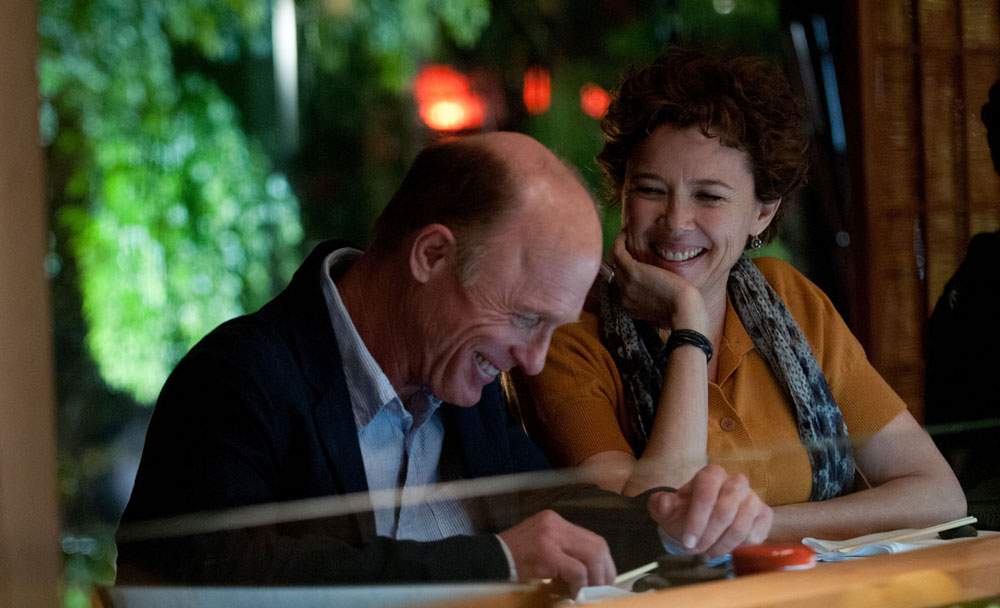The Face of Love
Sentiment triumphs over subtlety in the latest tale of obsession beyond the grave.
Overview
In films, the plight of the widowed and bereaved is to see their current moments combine with their cherished memories. When Garrett (Ed Harris), husband of Nikki (Annette Benning), drowns, her mournful gaze looks beyond her constant glass of wine and her no-longer-used backyard pool, everything in sight sparking recollections of his untimely passing. Five years later, the pain may not be as prominent, but in places and people she remembers his presence. Visiting an art exhibition aptly entitled The Pursuit of the Past, Nikki spies a man who could be Garrett's doppelganger (also played by Harris), then seeks him out to start a relationship.
Thick, syrupy grief seeps through every frame of The Face of Love, in idea and execution. In the story, the unlikely nature of the central concept is glazed over in favour of furthering that oft-used romantic utopia — the ever-lasting connection. In the style, all things soft invade the parade of sentimental imagery, every sequence lensed with the warm hue of the fetishised. There's never any question that the film is presenting an exercise in wish-fulfilment of soap opera proportions, albeit with more restraint and overt attempts at evoking an air of resonance.
It has been a long time between cinematic drinks for director Arie Posin, with his first and only other feature, The Chumscrubber, released in 2005. His return to filmmaking marks an obvious change of pace, and it seems ill fitting, not just in the contrast but also in the heavy-handed approach to the content. While The Face of Love endeavours to dwell in quiet moments of contemplation, it shouts its themes with the loudest voice possible. There's no emotion left unturned, nor any effort to elicit sympathy missed.
Perhaps much of the misfiring emanates from a premise that, if gender roles were reversed and the narrative still rendered in the same fashion, would be seen as creepy rather than compassionate. The idea of obsession beyond the grave is hardly new, but outside of movie-of-the-week territory the bulk of comparable offerings have aroused something other than mawkishness and misguided melodrama.
Bening and Harris certainly try to rise above the schmaltzy material, their performances tenacious even when uttering the most ridiculous lines of dialogue. Shades of subtlety exist in both portrayals, reaching past characters written by Posin and co-scribe Matthew McDuffie (A Cool Dry Place) in a single dimension. Alas, not even the most invested portrayals — or the strangest of supporting slots, with honours going to Robin Williams as an interested but rebuffed neighbour — can salvage an effort concerned only with the most blatant emotional manipulation. The depiction of mourning on screen, as well as the cast, simply deserve better than this broad, bland fantasy.






